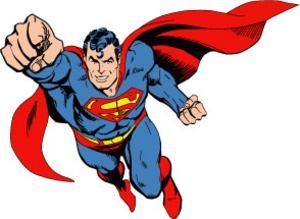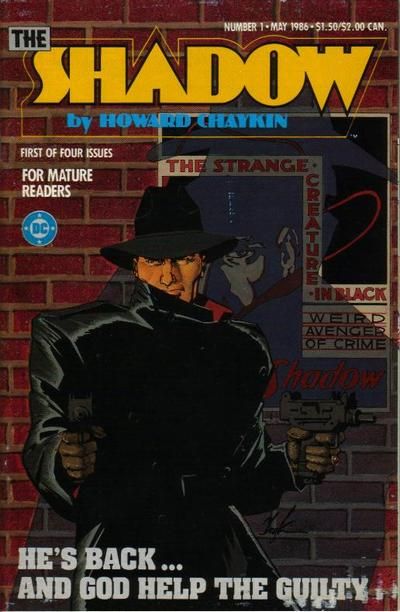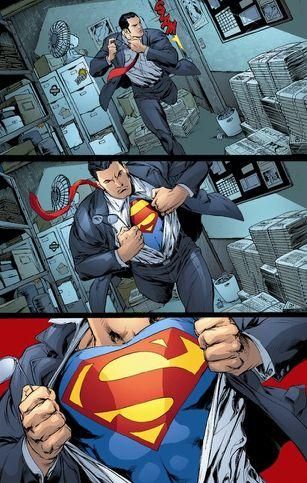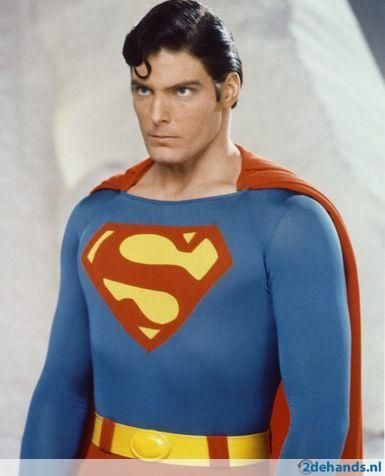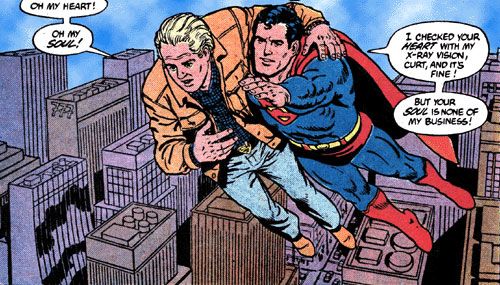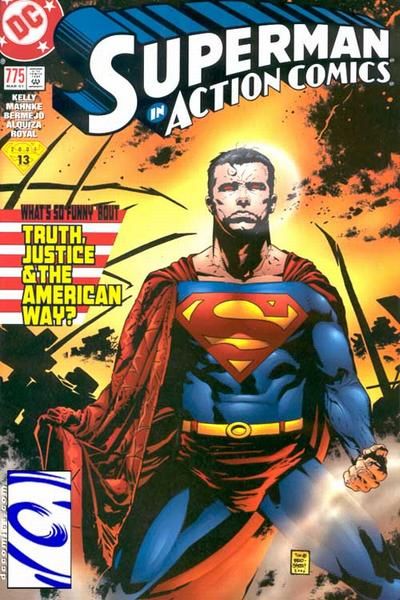I've noticed something about when comics fans argue. (Well, actually, I've noticed a lot of things over the years about how comics fans argue, most of them pretty damn funny.)
But this isn't one of those columns where I am rude about fans. (...although if I wanted to be rude about fans, I would, and I wouldn't send some damn bunny to do my dirty work for me, either.) This is more of a speculative exercise, or maybe a parlor game.
I talked about it a little bit last week, but really what got me started thinking about it was reading the Dennis Lynds Shadow novels from Belmont that took place in the mid-sixties James Bond setting. Those are fun books, I've enjoyed the ones I've seen... but nevertheless, that version doesn't feel quite right. Ditto Howard Chaykin's and Andrew Helfer's comics versions from the 80's -- as much as I enjoyed those, and I did, I can't think of them as the REAL Shadow.
So that led me to wonder... how much can you take away from a character and still have it be recognizable as that character?
Because God knows, if there's one thing comics fans cannot agree on, ever, it's what version is THE baseline version. Of anything. We're watching it play out most recently over Civil War ("Come ON! Reed Richards would never do that! Spider-Man would never do that! Iron Man would never do that!")
...and so on. I am having occasional bouts of it myself, every time I look at the new Justice League book (I mean, really, Superman would NEVER set himself up as being better than the other Leaguers, and the way Brad Meltzer insists on making him the leader of the Kool Kids Klub is really grating.) But that's another rabbit trail I don't particularly want to go down today.
No, I want to get back to this original idea, because I think that's an interesting exercise. I'm wondering if it's possible to reduce -- let's say, Superman, since I brought him up -- to his basic elements. What does the generic Superman look like? How much can you change or take away from that idea and have it still be Superman?
Is it the costume? Well, on the one hand, the internet caught fire when Bryan Singer made a couple of changes to the suit for Superman Returns... but on the other hand, six seasons of Smallville say no, the costume's not THAT important. You can have Superman stories without a cape. (One of my favorites is reprinted in Superman In The Seventies, "I Can't Go Home Again" by Maggin and Anderson.)
How about the powers? There have been great Superman stories where he's been de-powered for some reason -- "Superman Under The Red Sun" is a classic, and there are dozens of others. But most of those stories depend on the novelty of a non-super Superman, the story's still ABOUT the super powers even if for some reason Superman can't call on them. So I think you have to stipulate super powers. Strength and flight, especially -- even on no-tights-no-flights Smallville, young Clark Kent is shown flying once in a while.
Speaking of Clark Kent, I think he's essential. You can't have a Superman story without at least acknowledging that sometimes he's disguised as Clark Kent. How you get there, what kind of guy Clark is, and so on... well, that's the part that leads to all the arguing. But, bottom line, for it to really be Superman then sometimes he has to pretend to be a regular, non-super guy; even though we all know he's not.
Even Smallville, with its willful rejection of so many Superman trappings, has been all over this idea from day one. There are stories that are Superman-centric and stories that are Clark-centric, but both sides must be there.
What else do you HAVE to have? A certain layer of loneliness to overcome, a sense of alienation. Superman is an immigrant alien, one that lives as one of us because he loves it here on Earth. Not necessarily American, despite "truth, justice and the American Way"; I thought Red Son was a terrific Superman story, and even if you didn't, I don't think you can dispute that Superman was recognizable in it.
But his affection for humanity, his desire to be one of us despite all the things that set him apart -- I think that's generic. That cuts across all versions. This idea of Superman-as-alien, the necessity of that, is usually the reason listed most often as why Clark should never have married Lois, but I disagree. I think you can still do it with a married Superman. It's just that you need to find different notes to hit to bring it out. (For example, Superman perceives the world differently than we do, his senses function differently. There are things Lois sees that he never can. And so on.) It could be done. The trouble is that people think that lonely alienation automatically equals misery. It really doesn't. It's just that Superman's always going to be different and on some level he wishes he wasn't. That's enough to hit. It doesn't mean Superman can't be married. It doesn't have to be a big melodramatic weepy thing. But it does have to be there somewhere.
And finally, I think for it to be Superman, there has to be a level of humility. He absolutely does not think of himself as the leader of all the other DC super types, he doesn't regard himself as Earth's greatest champion, he doesn't think that way at all. Superman, if you were to ask him, would probably say something about how he's a guy doing his best and he hopes other people would do the same. Remember how Christopher Reeve played him in the movies? That's the attitude.
He is genuinely humble in the best sense of the word. Not the phony aw-shucks farmboy sentiment that gets trotted out so often in recent years, as though being humble and good-hearted is some sort of joke, something to sneer at because it's so uncool. (Frank Miller has a lot to answer for, here.) Superman is a hero because he wants EVERYONE to be a hero. He's trying to show everyone that yes, it's possible to be that good, it's COOL to be a good guy, damn it. Superman appreciates all the rest of humanity just as much as they appreciate him, he sees the hero in everyone.
That was why so many of us were pissed off about John Byrne's vaguely smirky Superman, and why we swooned over Action #775. Byrne's Superman had a lot of great things going on, but the part that he just never quite got right was the humility.
On the other hand, though, Joe Kelly absolutely nailed it in "What's so Funny About Truth, Justice and the American Way?"
And there was something so REFRESHING about seeing it done RIGHT, even with all the modern comics sensibilities layered over it. I remember putting that book down and thinking, Yeah. He gets it. That's Superman.
So, to sum up, strip everything else away and Superman should still be:
...really strong and able to fly
...from another planet
...living part of the time in a secret identity as a normal human
...occasionally wistful about never really BEING a normal human
...helpful, heroic, and humble
Now, there have been many, many stories that contradict this. Superdickery.com is practically an index of them. I know that. My idea is to somehow get at the basic idea of Superman done right and I think that's it.
You can do this exercise with any character, really. I picked Superman because he's an example that I figured everyone would know, and there's so much history to draw from you can pretty easily bowl out the common factors of all the best efforts. Other characters, there's not as much history, but on the other hand there are far fewer common characteristics. The Flash = fastest man alive, background in science or at least an SF milieu. The Hulk = strongest being alive, thematically show that anger has bad consequences. (I debated adding in that the idea of brains vs. brawn should always at least be touched on in a Hulk story, but changed my mind at the last minute -- it is an idea that comes up again and again, but I don't know that it's required.) And so on. Take all the best stories of that character and see if you can shake out the common factors.
Someone last week suggested the current Spider-Man as an example of this NOT being done and thus the JMS version really isn't Spider-Man; and though I tend to agree, I think if you treat the whole Avenger/Civil War thing as one really long arc it might still work out. I doubt it, and I've given up most all the books I was getting that were screwed by Civil War... but to be rigidly fair, the story's not technically over yet. However, it was brought up that 'married to a supermodel' was one of the non-Spider-Man criteria, and I wanted to talk about that for a minute.
Married to a supermodel, yeah, that would be wrong. Married to MJ? Not a problem if it's done right. Because -- here's the thing -- there are too many good examples of it working. Especially in prose: Peter David did a brilliant short story, "Five Minutes," in the Ultimate Spider-Man prose anthology a few years ago, and there's also the wonderful Adam-Troy Castro Sinister Six books.
The key word here is "supermodel." That's the mistake. MJ shouldn't be a successful model/actress. She should be a struggling one. Knocking on doors, going to auditions, fighting it out. Because to me one of the defining characteristics of Spider-Man is his relative poverty. Peter and MJ should always be a little on edge about their finances. The mistake isn't being married to Mary Jane. That can work fine, and frankly I'm getting a little creeped out by people (some of whom even work at Marvel) who keep suggesting that MJ needs to die. That's the schlock solution. Take some time to think it through and you get at the real issue pretty quickly.
The real issue is that Peter Parker's life should always be suffering somewhat because of Spider-Man. Peter and Spider-Man should always be in conflict and Peter should almost always lose. Because with great power comes great responsibility. See? This isn't to say that Peter needs to be destroyed by Spider-Man, which is what killing MJ would be (and what killing Gwen Stacy almost was, it really darkened the tone of the book for years.) It's just that being Spider-Man makes Peter's life HARD. Responsibility is hard... but it's worth it in the end. That's what Stan Lee and Steve Ditko and John Romita painstakingly set up. And they were smart enough to let Peter pull out a minor win in his personal life once in a while.
Reason from THAT place and yeah, Avengers Tower and the Stark job and the armor and the national ID disclosure and all those things look as dumb as they should -- but the marriage, and for that matter Peter's finally telling Aunt May -- those things are okay. They don't conflict with the basic idea of Peter vs. Spidey = tough personal life. They are new challenges to make work within that framework, not clear violations of it. I think those are interesting new spins on the basic old idea of how the hell does Peter Parker be Spider-Man, fulfill his Great Responsibility, and still have a life. Because that's what you've GOT to have. The problem with Spider-Man the Avenger and his family living in the Tower is that he's not Peter Parker; he's essentially Spider-Man all the time. He might as well be Hawkeye or the Vision at that point.
Of course, all this is just my opinion and not necessarily that of the universe. I expect there will be a great deal of dissension. Argue away -- it's what we do. Although really I think it would be more fun for you to pick a character we didn't get to and see what you come up with. I'm curious to see what results you'd get trying this with the FF or Batman or whoever.
See you next week.

